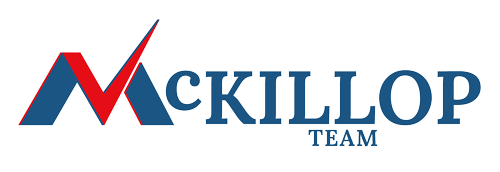Purchasing a property is a significant decision that involves carefully considering various factors, including location, condition, and price. For some buyers seeking unique opportunities in the Canadian real estate market, foreclosure properties present an alluring prospect. As these properties are typically sold at a lower price than their market value, they offer the potential for substantial cost savings and investment opportunities. Let’s learn more about the risks and rewards of purchasing foreclosure properties.
What is a Foreclosure Property?
Foreclosure properties, or distressed properties, are homes repossessed by lenders or financial institutions due to the borrower’s inability to meet their mortgage obligations. In the foreclosure process, the lender seeks to take possession of a property when the borrower defaults on mortgage payments. Once a property has undergone the foreclosure process, it enters the real estate market or goes to auction as a foreclosure property.
The Rewards of Purchasing a Foreclosure Property
Purchasing foreclosure properties in Canada offers several potential rewards that make them appeal to savvy buyers seeking unique opportunities in the real estate market. While navigating the complexities of distressed properties requires diligence, the following rewards can make the effort well worth it:
Potential Cost Savings and Discounted Prices – One of the primary attractions of foreclosure properties is the potential for substantial cost savings. These properties are often sold below their market value, allowing buyers to secure a property at a discounted rate. For budget-conscious homebuyers and investors alike, this can translate into significant savings and immediate equity in the property.
Access to Properties in Desirable Locations – Foreclosure properties can offer access to homes in sought-after neighbourhoods and desirable locations that might have been unaffordable through conventional listings. For those aspiring to live in a specific area, purchasing a distressed property can be an opportunity to fulfill their dream of home ownership in a preferred location.
Opportunity for Customization and Renovation – Many foreclosure properties may require renovation and improvement, allowing buyers to customize the property to their preferences. Homebuyers seeking to design their dream home or investors interested in enhancing a property’s value can find foreclosure properties as ideal canvases for their vision.
Faster Acquisition Process – Compared to traditional real estate transactions, foreclosure properties may offer a quicker acquisition process. In some cases, buyers can secure foreclosure properties through auctions or bank-owned listings, expediting the purchase timeline.
Potential for Rental Income – For investors looking to generate rental income, foreclosure properties can be attractive options. Acquiring a distressed property at a lower price allows for higher potential cash flow, improving the return on investment for landlords.
The Risks of Purchasing a Foreclosure Property
While purchasing foreclosure properties in Canada can offer significant rewards, buyers need to be aware of the potential risks involved. The following are some critical risks associated with buying foreclosure properties:
Property Condition and Hidden Issues – Distressed properties are often sold “as-is,” meaning that the property’s condition may be unknown or require extensive repairs. Buyers may encounter hidden issues such as structural problems, plumbing or electrical issues, or pest infestations. Assessing the property’s condition through inspections is crucial to understanding the scope of necessary repairs and potential additional costs.
Limited Property History and Disclosure – Unlike traditional real estate transactions, foreclosure properties may have little information about their history and maintenance. Previous owners might not have fully disclosed the property’s condition or any prior damages. This lack of information can lead to uncertainties for the buyer.
Financing Challenges and Restrictions – Securing financing for foreclosure properties can be more challenging than for traditional real estate. Some lenders may impose stricter lending requirements, higher interest rates, or shorter loan terms for distressed properties. Buyers should explore financing options in advance and be prepared for potential limitations in obtaining the desired mortgage.
Title Issues and Liens – Foreclosure properties may have title issues, such as unclear ownership or competing claims. Buyers must conduct a thorough title search to ensure no outstanding liens or encumbrances on the property. Addressing title issues can be time-consuming and may require legal assistance.
Unanticipated Costs – Beyond the initial purchase price, foreclosure properties may come with unforeseen costs, such as property taxes, homeowner association fees, and maintenance expenses. Buyers should budget for these additional costs to avoid financial strain after acquiring the property.
In pursuing foreclosure properties in Canada, researching and consulting is an indispensable step that can spell the difference between a successful investment and unforeseen challenges. With a trusted RE/MAX agent as your partner, you can seize the unique opportunities that foreclosure properties present and unlock the potential for success in the Canadian real estate market.

